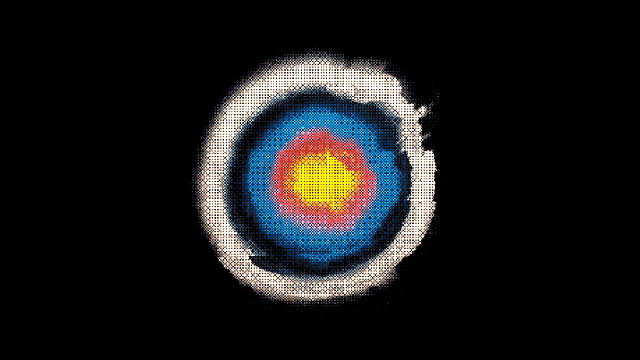
When to quit: A simple framework for life’s toughest decisions
By Danny Kenny | Published: 2025-06-16 14:00:00 | Source: Smart Skills – Big Think
Sign up for Big Think on Substack
The most surprising and impactful new stories delivered to your inbox every week, for free.
Near the end of my second year, my PhD supervisor delivered the news: They weren’t going to have funding for me anymore. Not an ideal start to a Tuesday morning.
However, I was already on a half-stipend anyway. I thought this was normal, so I did what I thought you were supposed to do: patch together a living and fit life in the cracks. I had a full-time job at the university as a project officer, plus five other side gigs. $42,000 needed; two semesters to cover. 60+ hours of real work. Get to the PhD in the off hours, the early mornings, the late nights, and the days we used to call weekends.
Simple math, brutal reality. Six months in, I realized this was not normal. It was highly irregular and professionally questionable. The more conversations I had with university officials, the more people subtly (or not so subtly) suggested I extract myself from a relationship gone sour.
There was, however, a small complication. I was 4,000 miles away from home, with my immigration status hanging entirely on my student visa in Australia. If I lost my status as a student, I’d lose my ability to work and stay in the land down under.
My PhD once seemed like this thrilling intellectual adventure. Now it was sapping my will to live. I questioned who I was and what I was good at to the point of existential depression. I wanted to quit. But deciding whether to stay or go felt like choosing between two futures I couldn’t see clearly. Searching for guidance, I stumbled upon someone who changed my approach entirely.
Annie Duke’s 2018 book Thinking in Bets introduced me to a seemingly counterintuitive concept: Instead of trying to predict whether staying or leaving would work out better, I needed to focus on making the best possible decision with the information I had, knowing I couldn’t control the outcome.
To be successful, I had to completely let go of whether finishing the PhD was the definition of success.
Duke, a World Series Poker Champion with a PhD in cognitive psychology, calls this avoiding “resulting,” which is our tendency to judge the quality of our decisions based on how they turn out rather than on the process we used to make them. A good decision can have a bad outcome due to factors beyond our control, just as a poor decision can sometimes work out well due to sheer dumb luck.
In other words, the dumbest boss you’ve ever had can sometimes turn up great results. The smartest person you know and love in your life can still get unlucky. It doesn’t mean the former was right, or the latter was wrong.
Because Lady Fortune sometimes simply can’t resist putting her thumb on the scales, the key is to build an explicit, rigorous process for choosing our life’s most important decisions, regardless of what happens next.
This insight transformed my approach to the PhD decision at a time I desperately needed help. Instead of agonizing over an unknowable future, I could bring a structure and system to my choice: What were my real goals in the long term? What information did I have about the options before me? What were the likely scenarios and their probabilities? How do these choices align with my values?
It was my first encounter with something most of us never explicitly learn: decision-making as a teachable, improvable skill.
The missing curriculum
“There are only two things that determine how your life turns out,” Duke tells Big Think. “One is luck, which we don’t have any control over. And second, where you land in that range of possible outcomes is going to be determined by the quality of your decisions. The quality of your decisions determines, in large part, the quality of your life.”
Duke should know. The former professional poker player turned decision scientist has spent decades studying choice under uncertainty. After retiring from poker in 2012, where she earned millions and a World Series bracelet, she’s devoted herself to understanding why smart people make systematically poor decisions and what we can do about it.
Her conclusion is simple, even if difficult in practice: Decision-making is a learnable skill with frameworks and processes that can dramatically improve life outcomes. Yet most of us rely on gut instinct, endless deliberation, cognitive biases hardwired into our heads, or whatever haphazard approach we’ve cobbled together through trial and error.
“We spend a lot of time teaching kids trigonometry,” Duke says. “But if we’re going to start to dig into math, once we get past addition, subtraction, division, multiplication — how about just teaching people probabilities? Because the core of every single decision that you make is a forecast about the future.”
This insight led Duke and her husband to found the Alliance for Decision Education in 2014. What started as a small program provider has grown into a national organization that aims to establish decision science as a core educational competency for kids K-12, just as important to a child’s education as reading and math.
For adults, the skill of decision-making can be a blind spot. Unlike professional poker players, most of us lack frameworks for making choices systematically. Consider how we typically approach major decisions. We make lists of pros and cons. We seek advice from friends and family. We agonize over the choice, hoping that if we just think hard enough, the right answer will emerge.
We rarely structure the decision systematically. We don’t often take the time or even possess the know-how to clarify our goals, estimate probabilities, consider opportunity costs, or set criteria for future evaluation. Which means even if the outcome turns out in our favor, we don’t understand why. We can’t replicate it. We can’t teach it to others.
In many ways, if we don’t understand the mechanics of good and bad decisions, we give up control over our lives, always reacting and never truly choosing.
We can do better.
The persistence problem
One area where better decision-making frameworks could immediately help is recognizing when to change course. In other words, we need to know when to quit.
Duke has identified a systematic bias in how we approach this choice because we are, quite frankly, terrible at leaving behind the things that no longer serve us.
“For most people over 25 who are professionals, they are too gritty,” Duke explains. “They’re sticking to things way too long.” She cites research from psychologist Angela Duckworth and her book Grit, which emphasizes the power of sustained effort and passion over time as key to success. Duke offers the other side of the coin: We also need to know when to walk away. We’ve been so thoroughly trained to value perseverance that we’ve lost the ability to recognize when persistence becomes counterproductive.
As journalist Sydney Harris once noted, “Perseverance is the most overrated of traits… beating your head against a wall is more likely to produce a concussion in the head than a hole in the wall.”
And yet every other aphorism in modern-day culture would tell you to stay in it, to grind, to gut it out. We stay in jobs that make us miserable just because we’ve invested so much time. We continue doomed relationships because walking away feels like admitting failure. Companies pour resources into failing projects because they’ve already spent so much money.
I’m no better here, perhaps particularly vulnerable to the “just work harder” mantras. In our conversation, Duke pulls apart one of my decisions to leave a previous job, showing that I could have (and probably should have) quit six months earlier.
This is the “sunk-cost fallacy,” a well-established cognitive bias that describes our tendency to continue investing in something simply because we’ve already invested so much. I’ve come this far, you think, not remembering the Japanese proverb, “If you get on the wrong train, get off at the next station.” The time, money, and energy you’ve already spent are gone, regardless of what you do next. The only question that matters is whether continuing forward is the best use of your future resources.
A practical framework for tough decisions
Duke offers a practical framework to combat this tendency, drawing from best practices in decision research.
When you first think about quitting something, ask yourself: “How long am I okay with the situation as it is? What is the deadline by which I need to make a decision?” This forces you to set a concrete date and timeline rather than indefinitely tolerating an unsatisfactory status quo. Coming from Katy Milkman’s work, a Professor at Wharton, these questions help us set up a pre-commitment, a wonderful tool in making better decisions and helping us to achieve our goals.
Next, we can engage in “mental time travel,” a concept from Hal Hershfield, a professor of behavioral decision making and psychology at UCLA. Imagine yourself at that deadline and ask: What would a good version of this situation look like? What specific signals would tell you things had improved enough to stay? And on the flip side, what would a bad version look like? What signals would confirm it’s time to go?
Together, these signals become your “kill criteria,” which are specific, observable benchmarks that take the emotion out of the eventual decision. You’ve essentially created a checklist to tell you when you’re heading in the right direction or entering free fall as you move toward your chosen deadline.
For example, when we revisited my decision to stay or go in a job, I looked at factors like the presence or absence of mentoring, professional development opportunities, and how I would have felt on a Sunday night heading into a week: full of excitement or full of dread?
But here’s where the framework gets particularly powerful: Duke then asks you to estimate the probability that the good version will actually happen.
“When people go through this exercise, they often realize they’re ready to move on immediately,” Duke says.
As Duke explains, the act of clearly articulating what improvement would look like and then forecasting the likelihood of achieving it often reveals that it’s highly unlikely, or borderline impossible, to achieve. By making these scenarios explicit, pulling the plug becomes far easier.
Teaching decision-making
Duke’s work with the Alliance reveals what becomes possible when decision-making is treated as seriously as other core skills. The organization focuses on four key areas: recognizing and resisting cognitive biases, structuring decisions, thinking probabilistically, and applying rationality (while aimed at kids, and even though familiar with the subjects, I still found the explainer videos on YouTube to be insightful).
These might sound like advanced concepts, but Duke argues they can be taught to kindergarteners. “You can teach kids that they’re agents of their own decisions,” she says. “You can teach kids about exploring options. How do you explore options? How do you be a good guesser of how things are gonna turn out?”
For example, young students can learn to estimate probabilities by predicting outcomes of simple classroom scenarios or games, learning to revise guesses as new information arises. This builds both mathematical reasoning and metacognitive awareness.
The work has shown promising results. In classrooms where teachers implemented decision education programs, researchers observed improvements in math and science scores alongside reductions in disciplinary problems. When students learn to structure their choices systematically, it affects everything from homework habits to social media use.
But the implications extend beyond student outcomes. Duke sees decision education as fundamentally about expanding opportunity and agency, particularly for kids who might not realize the full range of paths available to them.
She shares the story of someone who told her he was deeply invested in sports as a young person but didn’t realize until much later in life that there were ways to make a living in sports beyond being an athlete. “This ability to say, what are my options? How do I explore those? If we can teach kids to better structure decisions, the likelihood that they end up on a better path increases.”
A society of better choosers
The vision Duke describes is a society more comfortable with uncertainty, more willing to change course when evidence suggests a different direction, and less trapped by sunk costs and identity protection. In an era when career paths are less predictable, the ability to make good decisions under uncertainty seems increasingly valuable.
“If more people adopted this ‘prove yourself wrong’ mindset, how would that change our workplaces? Our politics? Our relationships?” Duke asks. The potential transformation is profound: organizations that update their strategies based on evidence rather than protecting past investments, political discourse focused on accuracy rather than being right, relationships that can navigate change rather than clinging to what was.
The choice to choose better
Duke’s frameworks didn’t tell me what to decide about my PhD program — they helped me determine what was possible and what was likely. Some of it was a game of math, giving me a systematic way to approach the choice rather than relying on intuition and hope. More importantly, once the numbers cleared, her ideas helped me decide based on what I valued, as an informed decision.
I did continue in the program, ultimately finishing with a clearer sense of what I wanted to do next. The funding crisis forced me to articulate my real goals and evaluate whether the academic path would achieve them. I knew I no longer wanted to stay in academia. Years of postdocs for an uncertain shot at tenure seemed like an incredibly bad deal. But the PhD offered more opportunities and opened more doors if I carried on.
So I stayed — and finished. The irony isn’t lost on me that it took a crisis to discover frameworks that could have helped me avoid the crisis in the first place. But that’s exactly Duke’s point about the current state of decision education: We’re all figuring it out.
We teach reading because it unlocks knowledge. We teach math because it explains the world. Duke’s argument is that decision-making deserves the same priority, if not more so, as a practical, lifelong skill essential to personal and societal well-being.
Perhaps that’s the ultimate decision we all face: whether we’ll take control of how we choose.
Sign up for Big Think on Substack
The most surprising and impactful new stories delivered to your inbox every week, for free.
ــــــــــــــــــــــــــــــــــــــــــــــــــــــــــــــــــــــــــــــــــــــــــــــــــــــــــــــــ






